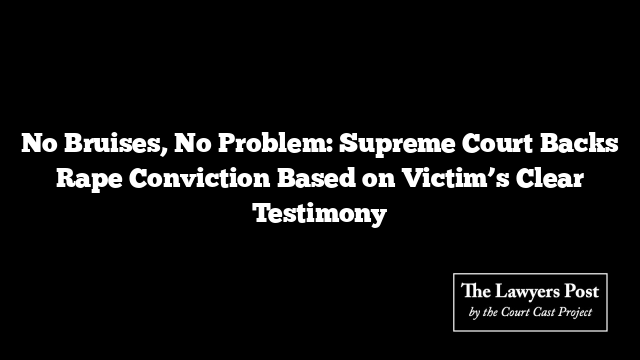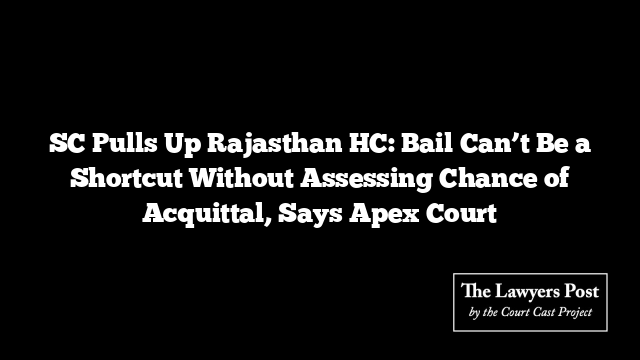The Supreme Court has once again made it unambiguous—when it comes to sexual assault cases, a survivor’s voice, if unwavering and credible, stands tall even when the body bears no visible wounds.
In a judgment that reinforces long-standing legal principle, the Court upheld the conviction of a man accused of raping a 15-year-old girl, making it clear that lack of external injuries or emphatic medical evidence cannot be used as a shield by the accused when the survivor’s account remains consistent and convincing.
“A victim’s testimony alone, when cogent and consistent, is enough to support a conviction,” the bench declared, brushing aside arguments that tried to downplay the survivor’s words in the absence of physical corroboration.
The case in question involved an appeal against a Chhattisgarh High Court judgment that sentenced the appellant to ten years in prison under Section 4 of the POCSO Act and Section 376(2) of the Indian Penal Code. The convict’s challenge was built around the absence of visible injuries or concrete medical proof of intercourse—a defense the top court dismantled thoroughly.
The court, citing settled law and drawing from earlier precedents like Wahid Khan vs. State of Madhya Pradesh, emphasized that even minimal penetration fulfills the legal threshold for rape under the IPC.
Justice NV Anjaria, writing the judgment alongside Justice Sudhanshu Dhulia, underscored the reliability of the young victim’s testimony, describing it as natural, coherent, and free from embellishments. Her narrative of the incident, delivered with clarity, was not only credible in itself but also subtly corroborated by her younger brother’s testimony—another witness who, despite his age, presented a rational and logical account supporting her version.
Details emerged during trial, such as the cot in the porch where the assault occurred, lending physical context to the survivor’s testimony. The bench found no cause to question her integrity or motive.
In conclusion, the Supreme Court firmly rejected the convict’s plea and endorsed the lower court’s judgment in full, stating there was no error in the conviction or the sentence. The message was clear: absence of bruises doesn’t erase trauma, and when a survivor speaks the truth with clarity, the law will listen.




